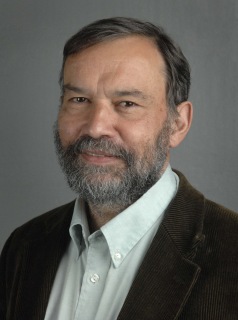The Bard’s language in the Tempest and Hamlet explored
By Jennifer Colbourne (Staff Writer) – Email
 David Schalkwyk, Director of Research at the Folger Shakespeare Library and editor of Shakespeare Quarterly, gave two talks at UFV last week on March 14 and 15. Both talks were very well attended. Schalkwyk is a foremost scholar in the field of Shakespeare studies, and his enthusiasm was undeniable, especially in the fervour with which he read passages from the plays; though an intimidatingly renowned academic and critic, he was also very warm and approachable and got to know several of the attending UFV students.
David Schalkwyk, Director of Research at the Folger Shakespeare Library and editor of Shakespeare Quarterly, gave two talks at UFV last week on March 14 and 15. Both talks were very well attended. Schalkwyk is a foremost scholar in the field of Shakespeare studies, and his enthusiasm was undeniable, especially in the fervour with which he read passages from the plays; though an intimidatingly renowned academic and critic, he was also very warm and approachable and got to know several of the attending UFV students.
His first talk, “Hamlet’s Dreams: The Robben Island Bible,” was directly based on a chapter from a new book he will shortly be publishing. The Robben Island Bible, as he explained, was actually a complete works of Shakespeare disguised as a religious text, read by prisoners in solitary confinement in the notorious prison on Robben Island in apartheid South Africa. Different political prisoners kept in solitary confinement, regardless of the restriction on sharing books, ingeniously managed to keep the book circulating, and would mark favourite passages and initial them; Nelson Mandela, for instance, marked “Cowards die many times before their deaths, / The valiant never taste of death but once” from Act II, Scene II of Julius Caesar.
Schalkwyk examined the similarities in language between Hamlet’s imprisonment of the mind, and the physical and psychological imprisonment of those on Robben Island. He looked in depth at the universal desire for community, and how it is built into the very structure of language itself through the pronouns “I,” “you,” “he/she,” “we,” and “they,” as seen in the testimonies of ex-prisoners of Robben Island and Hamlet. He also pointed out that Ophelia, much like the female ex-prisoners who were largely ignored as representative voices, is given no form of expression of her “self,” unlike Hamlet; the female voice is displaced by the male in both Shakespeare’s time and in our own.
In another type of language-based approach, Schalkwyk looked at how different types of speech contributed to Shakespeare’s creation of character in his other talk, “Theatricality and the Creation of Character in The Tempest” on the Chilliwack campus. In The Tempest, he revealed, Prospero is characterized by his commands, Caliban his curses, Miranda her pleas, and Ferdinand his promises. In some cases as characters begin to switch position, as when Caliban begins to gain power and Prospero to lose it, so their speech acts change: Caliban now begins to order, and Prospero to curse. Schalkwyk reveals language to be power: the characters use language in an attempt to control their circumstances.
As UFV’s production of The Tempest is currently being staged, this last lecture in particular was undoubtedly very insightful for the many theatre students who attended it. However, the talks overall were an enlightening success for both students and professors; Schalkwyk seems to have dramatically altered previous conceptions about language and Shakespeare at UFV.


